Human rights of food consumers
Human rights are understood as natural privileges belonging to all people, without any discrimination based on race, gender, language, religion, lineage, social status, etc. Everyone has human rights; human rights come from natural needs, from inherent human dignity, recognized, respected, and protected by national and international law (1) . Human rights have universal value, are inalienable, are closely linked to human dignity, and belong to the category of inviolability.
Developing diversified agricultural products according to the One Commune One Product (OCOP) Program associated with ensuring the quality of consumer products_Photo: baodanang.vn
In the field of food consumption, the human rights of food consumers are the synthesis of basic, natural rights that each individual enjoys when consuming food, to ensure the safety of their health and dignity. Therefore, the human rights of food consumers are not simply the right to buy and sell a product, but it is an indispensable part of human rights, associated with the right to live safely, the right to health protection and the right to a decent standard of living, protecting human dignity, determining the comprehensive development not only of each individual, but also maintaining the life, physical health and dignity of the whole community, nation - people, recognized and guaranteed in many international legal documents and Vietnamese law.
The human rights of food consumers include:
i - The right to access safe and nutritious food (Right to adequate food). This is a basic right, recognized in international documents on human rights, the Universal Declaration of Human Rights in 1948 affirms: "Everyone has the right to life, liberty and security of person"; in Article 11, the International Covenant on Economic , Social and Cultural Rights (ICESCR) in 1966 continues to affirm: "Everyone has the right to an adequate standard of living for himself and his family, including food, clothing, housing, and the continuous improvement of living conditions" (2) . The right to access safe and nutritious food does not stop at having enough food to avoid hunger but also includes food that is not harmful; nutritious food ; accessible food .
ii - The right to receive full and accurate information about consumer products. Food consumers have the right to be provided with all necessary information about the product to make the right consumption decisions, including: information about origin; Information on ingredients, quality; information on expiry date, storage conditions; risk warning information .
iii - Consumers have the right to freely choose foods, suppliers and food services that suit their needs, preferences and economic conditions, without being coerced or deceived. This right is also related to having a diverse and competitive food market.
iv - Consumers have the right to request compensation for damages from food businesses and individuals when food is not safe and causes harm to health, life or property. This right requires a clear and effective legal mechanism so that consumers can exercise their right to complain and denounce and have their complaints resolved quickly and fairly.
v - Consumers have the right to express their opinions and contribute to the process of formulating policies and laws related to food safety and consumer rights protection. Consumers have the right to participate in social organizations protecting consumers to speak up together and protect common interests.
vi - When participating in transactions and using food services, consumers must have their personal information protected, not abused or disclosed illegally.
In Vietnam, human rights are stipulated in the 2013 Constitution and consumer rights are stipulated and protected in Article 4 of the 2023 Law on Consumer Protection (3) and Article 9 of the 2010 Law on Food Safety (4) . In addition, they are stipulated in other laws, such as the 2007 Law on Product and Goods Quality... These legal documents form the legal foundation to ensure and protect the rights of food consumers, aiming towards a healthy and sustainable food consumption environment for people and human development.
Agency to ensure and protect the rights of food consumers:
Respecting, promoting and protecting human rights according to international standards belongs first of all to the state (with 3 levels of obligations), which are the obligation to respect, the obligation to protect and the obligation to implement human rights. In Vietnam, respecting, protecting and implementing human rights are specifically stipulated as follows: "The State ensures and promotes the people's right to mastery; recognizes, respects, protects and ensures human rights and citizens' rights; realizes the goal of a rich people, a strong country, democracy, fairness, civilization, everyone has a prosperous, free, happy life, and has conditions for comprehensive development" (5) ; " In the Socialist Republic of Vietnam, human rights and citizens' rights in politics , civil, economic, cultural and social aspects are recognized, respected, protected and guaranteed according to the Constitution and laws" (6) . With the above provisions, the Socialist Republic of Vietnam has the responsibility to recognize, respect, protect and ensure human rights through the performance of functions, tasks and powers according to the Constitution and laws.
With the obligation to recognize , the State acknowledges the social values, rights and legitimate interests of every individual and citizen in society, turning the natural rights of individuals into legal norms on human rights. By being constitutionalized and regulated by law, human rights become a great power, having mandatory effect on all activities of state agencies, civil servants, public employees, social organizations and enterprises to implement. Thus, the State acknowledges the rights in the food sector as human rights, the human rights of food consumers.
With the obligation to respect human rights (passive obligation) , the State must not directly or indirectly facilitate, support, or encourage any behavior that leads to the violation of the rights and freedoms of individuals and citizens. That is, the State, state agencies, and public servants must not assist businesses or any entity in producing, distributing, or circulating unsafe food that may affect the health of consumers.
With the obligation to protect (proactive obligation) , the State has the obligation to protect all individuals and citizens from violations of human rights guaranteed by the Constitution, national laws, as well as international conventions on human rights. This obligation is very important, requiring the State to take all necessary and appropriate measures to prevent and punish violations of human rights. In the food sector, acts of production, distribution, and circulation of food products that do not meet registered quality standards, counterfeit goods, fake goods, and poor quality goods that affect the health of consumers must be detected promptly and strictly handled.
With the obligation to guarantee, the State must take proactive actions to facilitate, promote and provide support services to ensure the enjoyment of human rights. This means that the State must implement legislative, administrative, judicial measures and national resources to protect, guarantee and promote human rights. These measures must ensure the best environment for the realization of human rights provisions in the Constitution, national laws and provisions of international human rights conventions.
Outstanding results in implementing the State's obligations to ensure and protect the rights of food consumers in Vietnam
The Socialist Republic of Vietnam has made great efforts in building and perfecting institutions, creating a legal basis to ensure and protect the human rights of food consumers. Many legal documents and sub-law documents have been developed, such as the 2010 Law on Food Safety and its implementing documents (7) ; the 2023 Law on Consumer Protection; promulgating National Technical Regulations (8) for competent authorities to inspect and evaluate product quality on the market, helping to prevent the circulation of poor quality and unsafe food. The 2015 Penal Code (amended and supplemented in 2017) stipulates that those who produce and trade in counterfeit medicines and disease prevention drugs, depending on the nature and severity of the violation, may be sentenced to fixed-term imprisonment, life imprisonment or death (9) ...
To enforce the law, the authorities have conducted a series of inter-sectoral inspections and examinations to handle violations of food consumers' rights. Every year, thousands of food safety violations are handled. The total amount of administrative fines amounts to hundreds of billions of VND each year. From 2020 to May 2025, the health sector inspected more than 1.9 million establishments and handled over 50,000 establishments for violations with a total fine of more than 247 billion VND (10) . In 2025, after 5 months of inspection, examination, investigation and handling of violations, a series of major cases that caused public outrage, typically cases related to dirty food, fake food, poor quality food, such as the use of banned substances in animal husbandry (salbutamol), production of fake functional foods, trading in foods of unknown origin, etc. were discovered and handled; In particular, in the peak month (from May 15, 2025 to June 3, 2026), authorities prosecuted 36 cases and 119 defendants related to the crimes of smuggling, trade fraud, production and trading of counterfeit goods and other acts in 24 localities ( 11) .
Along with perfecting the legal system, the State needs to invest in equipment, laboratories, food safety testing centers, the National Institute for Food Safety and Hygiene Testing, and provincial food safety departments to increase investment in purchasing modern equipment, such as gas chromatography, liquid chromatography mass spectrometry (GC-MS, LC-MS/MS) to detect antibiotic residues, pesticides, heavy metals, and toxins in food. Every year, the Ministry of Health, the Ministry of Agriculture and Environment, and the Ministry of Industry and Trade organize training courses to improve specialized knowledge on food safety; organize diverse communication campaigns: the mass media broadcast television programs, reports, and news on national channels (VTV, VOV) about food safety, how to choose safe food, and the dangers of dirty food.
Vietnam has been cooperating closely with international organizations such as the World Health Organization (WHO), the Food and Agriculture Organization of the United Nations (FAO), and developed countries (the United States, Japan, and the European Union) in building a food safety management system, training human resources, and applying international standards (such as HACCP, ISO 22000). Currently, many Vietnamese enterprises have successfully applied international quality management systems, improving their competitiveness and ensuring food safety for both domestic and export markets.
In addition to the achieved results, in the implementation of the State's obligations to ensure and protect the rights of food consumers in Vietnam, there are still some limitations and shortcomings, such as the situation of dirty food, food of unknown origin, counterfeit goods, and fake goods is still common and is developing very complicatedly; the number of detected cases does not decrease, but increases every year (12) ...
Solutions to perfect the mechanism for effectively implementing the State's obligations in ensuring and protecting the rights of food consumers
Firstly, perfecting institutions and mechanisms for synchronous and effective law enforcement and ensuring and protecting the human rights of food consumers.
It is necessary to specify in detail the responsibilities of food producers and traders; the responsibilities of parties in the food supply chain, from production, processing, preservation to distribution and consumption, especially the responsibility for tracing the origin of products, especially fresh and processed products. Supplement regulations on e-commerce in the direction of building stricter regulations on the responsibilities of e-commerce platforms and social networks in controlling the quality of food sold on their platforms. There needs to be a clear and easy-to-trace mechanism for identifying and authenticating sellers and products.
Consumers have the right to know clearly about the standards and technical regulations of consumer products_Photo: sggp.org.vn
It is necessary to have clearer regulations on technical standards and regulations towards standardizing technical standards and regulations for each type of food, ensuring compliance with international and Vietnamese standards. Along with that, it is necessary to develop regulations on novel foods and high-tech foods; build a legal framework to manage new foods, genetically modified foods, or products applying high technology in production, ensuring safety for consumers.
It is necessary to supplement sanctions that are strong enough and have sufficient deterrence, such as strengthening administrative and criminal sanctions for food safety violations, especially those causing serious consequences. Ensure that the level of fines must be much higher than the illegal profits gained. Improve enforcement efficiency, strengthen inter-sectoral coordination, overcome overlapping functions and tasks between ministries, branches and local authorities in inspection, supervision and handling of violations, with the principle that only one agency is responsible for one task; in particular, increase the authority of commune and ward authorities, which are closest to production and business establishments.
Increase surprise, unannounced inspections and audits at food production and trading establishments, especially small and household establishments. Publicize violations and penalties in the media to warn consumers and deter violators.
Develop effective dispute resolution mechanisms, including encouraging out-of-court dispute resolution, such as mediation and arbitration, to quickly resolve food-related cases. Improve regulations on non-contractual compensation for acts causing food safety violations. Facilitate consumer lawsuits, reduce the burden of proving damages for consumers in food safety-related lawsuits; establish a legal support fund for consumers when suing violating businesses.
Second, improve the capacity and responsibility of management agencies.
Continue to improve the professional qualifications, skills, and public ethics of the staff working in food safety inspection and supervision. Implement preventive measures and strictly handle negative behaviors, corruption, and protection of food safety violations. Develop a mechanism to control the power of agencies responsible for food safety, from licensing to production, distribution, and circulation, to prevent and combat negative phenomena, protection, and abetting of violations. Develop channels to receive information and feedback from people easily and quickly (for example, hotlines, mobile applications). Ensure a transparent and timely processing process and feedback to those who report.
Third, enhance the role of businesses and business people.
Organize training programs, disseminate food safety laws, human rights and business ethics for businesses and production facilities. Encourage the development of a responsible business culture, committed to human rights in business. Encourage and support businesses to develop and apply advanced quality management standards (ISO, HACCP, GAP, GMP). Require businesses to provide complete, accurate and transparent information about products (origin, ingredients, production process, expiry date, warnings). On the other hand, businesses need to have a separate department or mechanism to receive and promptly and satisfactorily resolve consumer complaints.
Fourth, raise awareness and capacity to protect consumer rights.
Promote propaganda, education, diversify forms of communication (including: television, newspapers, social media, mobile applications, community events, etc.) to convey information on food safety, how to identify poor quality products, and consumer rights. Widely publicize dirty food cases and their consequences to raise people's vigilance and awareness of denunciation. Encourage denunciation of violations, build a mechanism to protect whistleblowers, ensure information security, and provide appropriate rewards for useful information that helps detect and handle violations. Launch a nationwide movement to denounce food safety violations. Include content on food safety and smart consumer skills in educational programs at all levels.
Fifth, promote the role of social organizations.
Strengthening the capacity of consumer protection associations, such as providing financial support, human resources, and legal knowledge so that these associations can operate more effectively in consulting and supporting consumers, participating in monitoring and criticizing policies. Encouraging community participation, such as organizing volunteer activities and community monitoring of food safety.
Sixth, strengthen international cooperation.
In the context of the country's deepening economic integration with the world and the increasingly complex food supply chain, it is necessary to increase learning from experience and absorb international standards, including studying legal models and practices from developed countries with effective food consumer protection systems (e.g. the European Union (EU), the United States, Japan, and South Korea). Especially regarding regulations related to food safety, traceability, labeling, and dispute resolution mechanisms.
Strengthening the exchange of information and experience, implementing bilateral and multilateral agreements, organizing international seminars and training courses to improve the capacity of managers, inspectors, and consumer protection organizations on advanced food safety management and control methods and technologies.
Cooperation in scientific research, dispute resolution and cross-border law enforcement; coordination in investigation and handling of food safety violations involving foreign elements.
Seven, apply technology.
Modernize monitoring tools, fully equip authorities with modern inspection and analysis equipment. Apply information technology (AI, big data, blockchain) to analyze data, identify risks and trace product origins. Build an early warning system for high-risk food products and suspected violation locations. Develop mobile applications that allow consumers to scan barcodes to trace product origins, report violations or search for information on safe products. On the other hand, use big data and artificial intelligence to analyze violation trends, predict risks and support authorities in making control decisions./.
-------------------------
* This research was funded by the National Foundation for Science and Technology Development (NAFOSTED) under project number 505.99-2023.06
(1) Tuong Duy Kien: Theory of human rights and human rights education , National Political Publishing House, Hanoi, 2024, p. 17
(2) Ho Chi Minh National Academy of Politics: International and regional documents on human rights (selected) , Political Theory Publishing House, Hanoi, 2023, p. 149
(3) Article 4 of the Law on Consumer Rights Protection 2023 stipulates 11 rights, including: 1- To be guaranteed safety of life, health, honor, dignity, reputation, property, protection of information, rights, and other legitimate interests when participating in transactions, using products, goods, and services provided by business organizations and individuals; 2- To be provided with invoices, vouchers, and documents related to transactions; timely, accurate, and complete information about products, goods, services, transaction content, origin, source of products, goods, services, and about business organizations and individuals; 3- To choose products, goods, services, business organizations and individuals according to their needs and actual conditions; to decide to participate or not to participate in transactions; to agree on transaction contents with business organizations and individuals; to be provided with products, goods, and services in accordance with the agreed content; 4- Provide comments to business organizations and individuals on prices, quality of products, goods, services, service style, transaction methods and contents related to transactions between consumers and business organizations and individuals; 5- Request business organizations and individuals to compensate for damages when products and goods are defective, products, goods and services do not meet standards and technical regulations, do not ensure safety, measurement, quantity, volume, quality, uses, prices, other contents according to the provisions of law or are not in accordance with the registration, notification, announcement, listing, advertisement, introduction, contract, commitment of business organizations and individuals; 6- Participate in developing policies and laws on protecting consumer rights; 7- Make complaints, denunciations, initiate lawsuits or request social organizations to initiate lawsuits to protect their rights according to the provisions of this Law and other relevant provisions of law; 8- To be consulted, supported, and guided on knowledge and skills in consuming products, goods, and services; 9- To be facilitated in choosing a healthy and sustainable consumption environment; 10- To be protected when using public services according to the provisions of this Law and other relevant legal provisions; 11- Other rights according to the provisions of law
(4) Article 9 of the 2010 Law on Food Safety stipulates the rights of food consumers, including: i- Being provided with truthful information on food safety, instructions on use, transportation, storage, preservation, selection and appropriate use of food; being provided with information on risks of food safety and prevention methods when receiving warning information about food; ii- Requesting organizations and individuals producing and trading food to protect their rights in accordance with the provisions of law; iii- Requesting consumer rights protection organizations to protect their legitimate rights and interests in accordance with the provisions of law on consumer rights protection; iv- Complaining, denouncing and initiating lawsuits in accordance with the provisions of law; v- Being compensated for damages in accordance with the provisions of law caused by the use of unsafe food.
(5) Constitution of the Socialist Republic of Vietnam , National Political Publishing House Truth, Hanoi, 2025, pp. 9 - 10
(6) Constitution of the Socialist Republic of Vietnam , op. cit. , p. 16
(7) Decree No. 15/2018/ND-CP, dated February 2, 2018, of the Government, "Detailed regulations on the implementation of a number of articles of the Law on Food Safety"
(8) The Ministry of Health and the Ministry of Agriculture and Environment have issued Vietnamese Standards for each group of food products, such as: QCVN 8-1:2011/BYT (National technical regulation on limits of mycotoxin contamination in food); QCVN 01-189:2019/BNNPTNT (National technical regulation on fertilizer quality)
(9) Clause 4, Article 194, Penal Code 2015 (amended and supplemented in 2017)
(10) Do Thoa: “Minister of Health: Proposal to double fines for food safety violations”, Nhan Dan Electronic Newspaper, July 10, 2025, https://nhandan.vn/bo-truong-y-te-de-xuat-tang-gap-doi-muc-phat-vi-pham-an-toan-thuc-pham-post892765.html
(11) Quang Khai: "Fight fiercely against smuggling, trade fraud, and counterfeit goods to build a truly healthy society", Electronic Information Portal of the Ministry of Public Security, June 4, 2025, https://bocongan.gov.vn/tin-hoat-dong-cua-bo/dau-tranh-quyet-liet-voi-hoat-dong-buon-lau-gian-lan-thuong-mai-hang-gia-de-xay-dung-xa-hoi-that-su-lanh-manh-t45456.html
(12) In the first 5 months of 2025, with the peak of fighting and preventing smuggling, trade fraud, counterfeit goods, and intellectual property rights infringement, the authorities have discovered many cases related to food safety, such as the Kera Vegetable Candy case; crop of nearly 3,000 tons of chemically soaked bean sprouts in Dak Lak; Prosecuting a series of cases of large-scale production and trafficking of counterfeit drugs occurring in Thanh Hoa province, Hanoi city, Ho Chi Minh City and many provinces and cities nationwide.
Source: https://tapchicongsan.org.vn/web/guest/van_hoa_xa_hoi/-/2018/1124302/nghia-vu-cua-nha-nuoc-ve-bao-dam%2C-bao-ve-quyen-con-nguoi-cua-nguoi-tieu-dung-thuc-pham.aspx



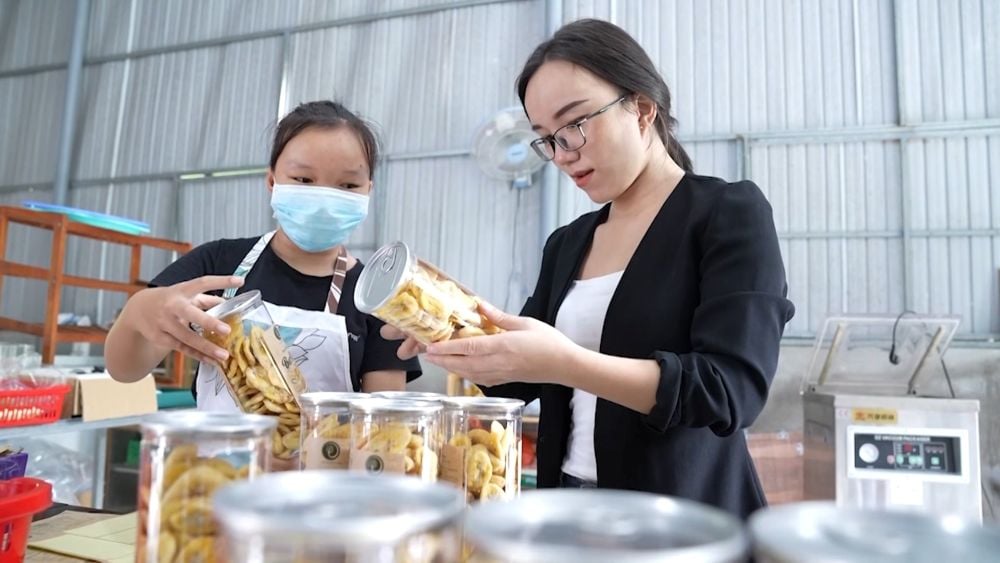
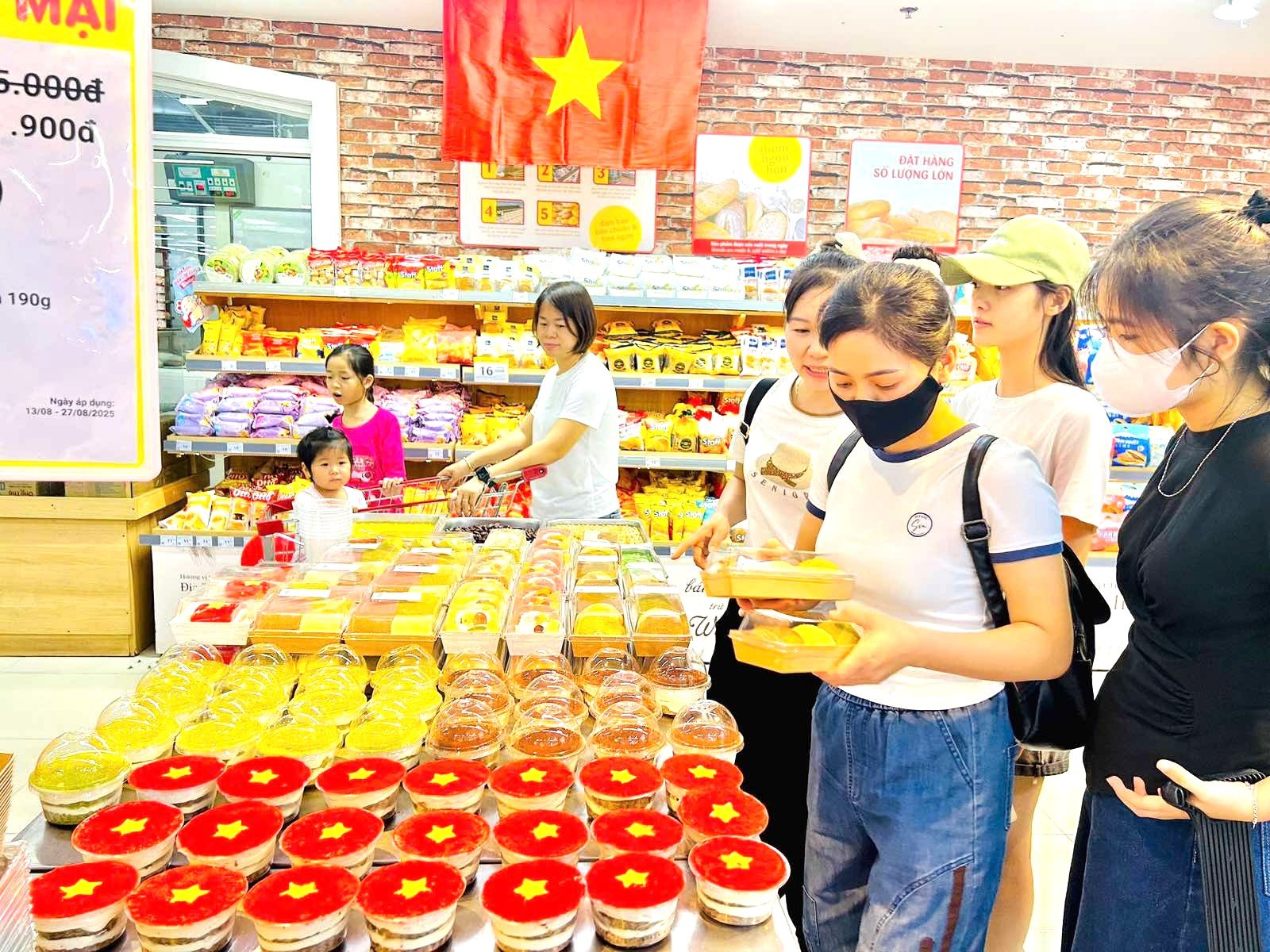
![[Photo] General Secretary To Lam attends the opening ceremony of the National Achievements Exhibition](https://vphoto.vietnam.vn/thumb/1200x675/vietnam/resource/IMAGE/2025/8/28/d371751d37634474bb3d91c6f701be7f)
![[Photo] Prime Minister Pham Minh Chinh meets with Speaker of the New Zealand Parliament Gerry Brownlee](https://vphoto.vietnam.vn/thumb/1200x675/vietnam/resource/IMAGE/2025/8/28/cec2630220ec49efbb04030e664995db)

![[Photo] General Secretary To Lam presents the 45-year Party membership badge to comrade Phan Dinh Trac](https://vphoto.vietnam.vn/thumb/1200x675/vietnam/resource/IMAGE/2025/8/28/e2f08c400e504e38ac694bc6142ac331)
![[Photo] Red flag with yellow star flutters in France on National Day September 2](https://vphoto.vietnam.vn/thumb/1200x675/vietnam/resource/IMAGE/2025/8/28/f6fc12215220488bb859230b86b9cc12)
![[Photo] Politburo works with the Standing Committee of Cao Bang Provincial Party Committee and Hue City Party Committee](https://vphoto.vietnam.vn/thumb/1200x675/vietnam/resource/IMAGE/2025/8/28/fee8a847b1ff45188749eb0299c512b2)














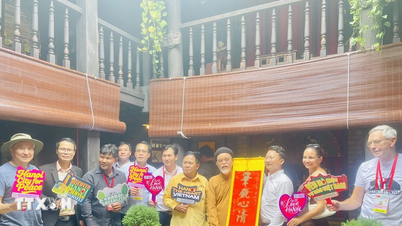




















































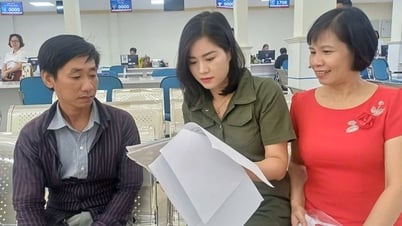




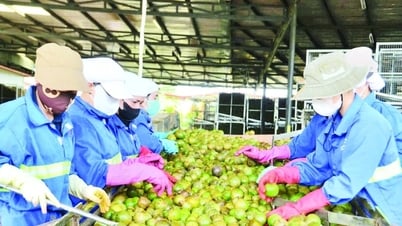
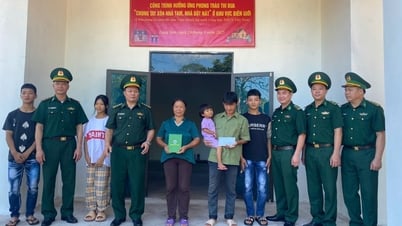

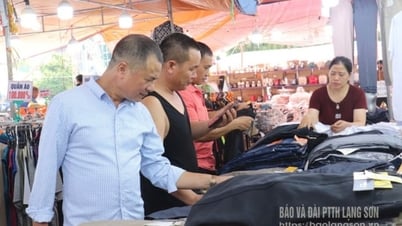
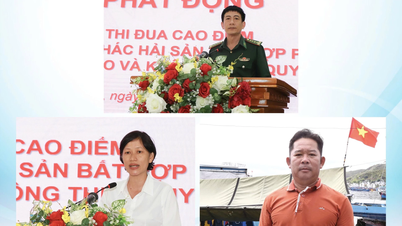















Comment (0)